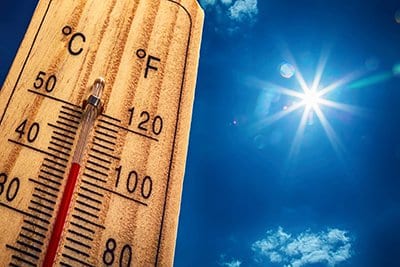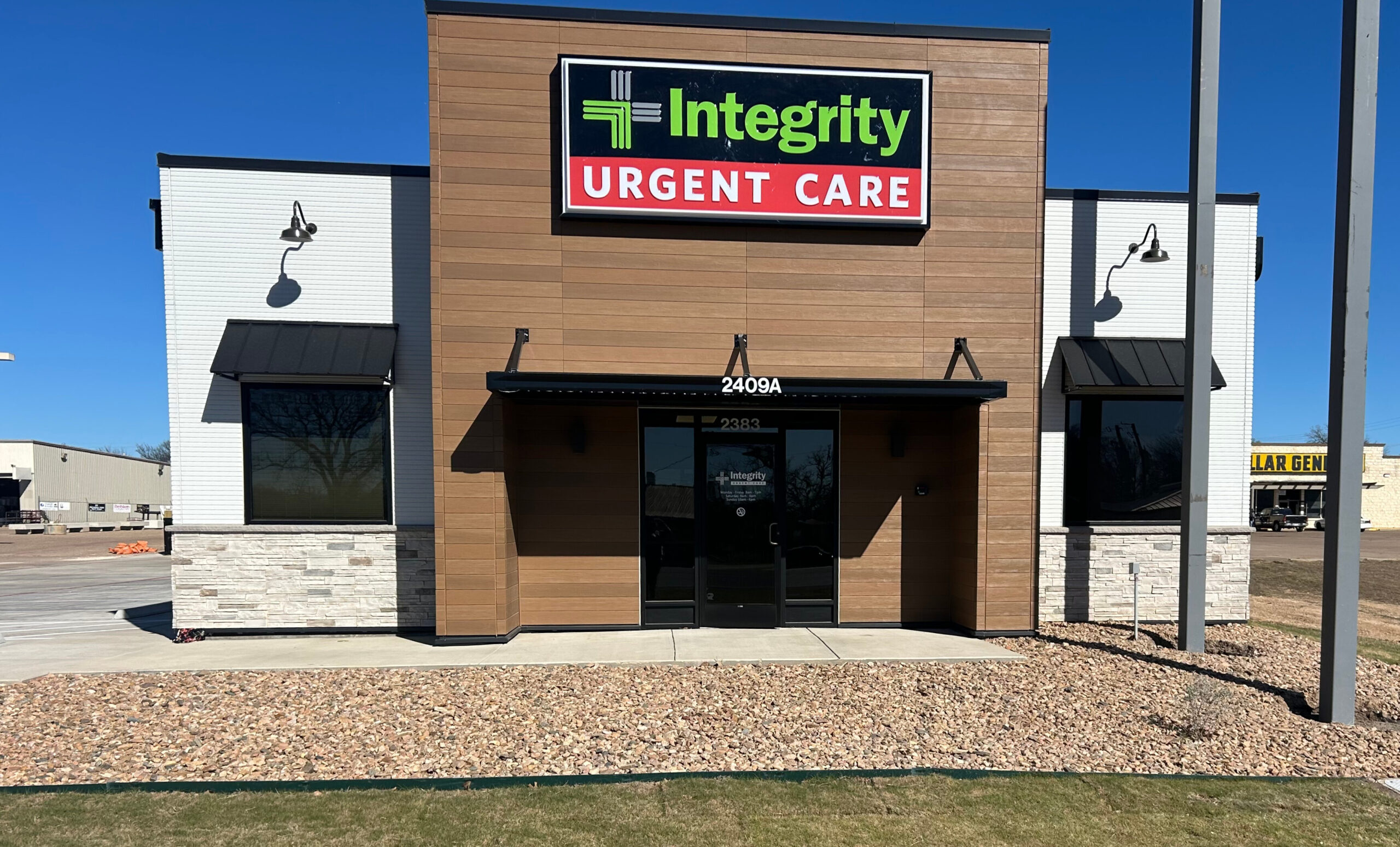If you have been outdoors lately, you may have noticed – it’s HOT! Even though we know it’s coming, it seems like really HOT weather can come very quickly, especially here in Texas. Being outdoors in hot weather, especially when the heat is accompanied by high humidity, requires special precautions. Normally, our bodies keep themselves cool by sweating. But sometimes, sweating is not enough, and body temperature can rise to dangerous levels, causing you to develop a heat-related illness. Each year, approximately 600 people in the US die from heat-related causes.
The most common cause of heat-related illness is extended exposure to the heat. Exercising or working in the heat increases the risk of illness. Older adults, young children, and individuals who are sick or overweight are at a higher risk, and some medications and drinking alcohol can also increase risk.
What is a heat-related illness?
Heat-related illnesses include:
- Sunburn: Sunburn is something probably everyone has experienced. It begins as painful, red, and warm skin. Once the skin has been sunburned, avoid additional exposure to the sun by wearing protective clothing, take cool baths, use moisturizing lotion on affected areas, and do not break any blisters which may form. (For more information, see previous blog on sunburns.)
- Heat rash: This is generally a mild form of illness and refers to superficial skin irritation due to excessive sweating. This is most common in young children.
- Heat cramps: Usually limited to arms, legs, and/or abdomen, these cramps or muscle spasms occur during heavy exercise.
- Heat exhaustion: This form of the illness usually occurs after several days of exposure to high temperatures (with or without high humidity) and insufficient fluid intake. Symptoms include profuse sweating, rapid breathing, and a fast, but weak pulse rate. If untreated, it may develop into heat stroke.
- Heat stroke: Truly life-threatening, a heat stroke occurs when the body temperature rises quickly to as high as 106 degrees F in just minutes. Symptoms include dry skin (rather than profuse sweating), a rapid, strong pulse, dizziness, confusion, and nausea. If these symptoms are noted, seek medical help IMMEDIATELY.
How can I prevent heat-related illness?
The easiest way to avoid this group of illnesses is by using common sense. For instance, use sunscreen with an SPF of 15 or higher and reapply frequently. Additionally, limit exposure to the sun and heat by staying out of the sun when it is strongest (usually 10 am to 2 pm) and wearing protective clothing. Lastly, drink plenty of water to prevent dehydration and replace salts and other lost minerals.
NEVER leave anyone – especially infants or children – in unattended vehicles during the summer! Each year in the US, children die from being left unattended in hot cars. A car parked in direct sunlight can reach up to 131 degrees F in minutes even if the outside temperature is only 80 degrees.
When should I seek medical help?
- Call 911 right away if a person shows signs of heat stroke. This is a medical emergency!
- If a person shows signs of heat exhaustion, get out of heat and try to cool off. If symptoms last more than an hour, become worse, or you are throwing up, get medical help right away.
- If you develop heat cramps which last longer than an hour, or you are on a low-sodium diet or have heart problems, seek medical help.
- Sunburn and heat rash generally do not require medical help unless symptoms become worse and do not lessen with time.
Integrity Urgent Care has three convenient locations with experienced staff who can provide treatment. Walk-ins are always welcome! Help may also be a phone call away, and you can contact the Bryan/College Station location at 979-703-1832.
Remember, enjoy the great outdoors during the long days of summer, but BE SAFE and protect your loved ones! Heat-related illnesses and deaths are preventable.
Sources:
American College of Emergency Physicians. Children in hot cars result in fatal consequences. 2018. http://www.emergencycareforyou.org/Health-Tips/Children-in-Hot-Cars-Result-in-Fatal-Consequences/
Centers for Disease Control and Prevention. About extreme heat. Last updated 19 Jun 2017. https://www.cdc.gov/heat-health/about/index.html
MedlinePlus. Heat Illness. Last updated 17 Apr 2018. https://medlineplus.gov/heatillness.html
MedlinePlus. Sun exposure. Last updated 23 Apr 2018. https://medlineplus.gov/sunexposure.html



